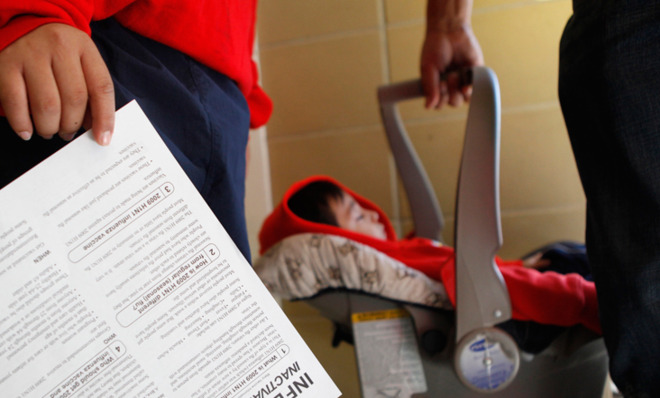How Tennessee incentivizes abortions
We need legislation that protects pregnancy and mothers, not just unborn infants

A free daily email with the biggest news stories of the day – and the best features from TheWeek.com
You are now subscribed
Your newsletter sign-up was successful
August has witnessed a bombardment of bad news for America's most vulnerable mothers and babies.
First, lawyers for the Equal Employment Opportunity Commission released a breakdown of the pregnancy discrimination cases they handled in 2013 — and the big finding was quite distressing. Women in low-income jobs — like food service, retail, and manufacturing — are the most likely to seek help dealing with pregnancy discrimination in the workplace, they found. That's especially alarming when you consider that low-income workers tend to need their work the most, a reality made more grave by pregnancy.
Second, there's already been an arrest in Tennessee under a new law that turns newborns addicted to or harmed by drugs during pregnancy into evidence in their moms' prosecution for assault. Despite the fact that there is little evidence to support the idea that such a measure would dissuade drug use during pregnancies, the law passed with overwhelming support from the Tennessee legislature.
The Week
Escape your echo chamber. Get the facts behind the news, plus analysis from multiple perspectives.

Sign up for The Week's Free Newsletters
From our morning news briefing to a weekly Good News Newsletter, get the best of The Week delivered directly to your inbox.
From our morning news briefing to a weekly Good News Newsletter, get the best of The Week delivered directly to your inbox.
What these two scenarios — the absence of solid labor protections for pregnant workers and the Tennessee punitive legislation — have in common is that they both unintentionally form push factors that make abortion an attractive option.
If fair accommodations for pregnant workers are not legally guaranteed, then women have a great deal to lose from pushing employers to provide them. When a low-income pregnant worker loses her job, she very suddenly loses access to any number of supports, chief among them insurance and income. Faced with these repercussions, it is not hard to imagine how abortion begins to look better than carrying a child to term with no way to care for it.
The same abortion-incentivizing result can be found in Tennessee's law. The possibility of imprisonment for giving birth to a drug-addicted baby basically encourages women in dire straits to pursue abortion instead of carrying their babies to term. If ultrasounds are imagined to be a substantial enough nudge to put women off of abortion, then surely the prospect of jail time — or poverty and lost insurance — is substantial enough to do the opposite.
And that's the problem with current thinking about abortion: A culture of life — one that is truly hospitable not only to the birth of children, but to pregnancy, motherhood, and family life — must be outfitted with legislation that protects pregnancy and mothers as strenuously as it does infants.
A free daily email with the biggest news stories of the day – and the best features from TheWeek.com
Our policy regarding abortion cannot rest on punishment; each mother that is thrown in prison represents one child bereft of a natural parent, a circumstance antithetical to the purpose of a culture of life. Instead of threatening to imprison pregnant women who use drugs, it would be wiser to provide free and reliably accessible health care to treat addiction and the problems that give rise to it. Likewise, rather than presuming companies produce family-friendly cultures on their own, legislation protecting the rights of pregnant workers seems an intelligent investment in moms and their infants.
When Pope Francis remarks on abortion, he often speaks of a "throwaway culture" that "wastes" human life. I believe this to be an equally accurate assessment of the social circumstances that turn abortion into a grim but ordinary reality. It's not only infants whose lives are thrown away by cultures that provide insufficient support for pregnancy and childbearing, but mothers' and would-be mothers' lives as well. A culture of life that prevents the throwaway tendencies Pope Francis rightly condemns should recognize that the relationship between mother, infant, community, work, and care is a thick and irresolvable one. To support infants, we must support mothers in all their capacities, from healthcare to work to child-raising itself.
-
 How the FCC’s ‘equal time’ rule works
How the FCC’s ‘equal time’ rule worksIn the Spotlight The law is at the heart of the Colbert-CBS conflict
-
 What is the endgame in the DHS shutdown?
What is the endgame in the DHS shutdown?Today’s Big Question Democrats want to rein in ICE’s immigration crackdown
-
 ‘Poor time management isn’t just an inconvenience’
‘Poor time management isn’t just an inconvenience’Instant Opinion Opinion, comment and editorials of the day